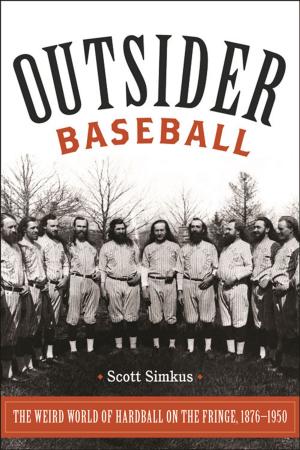Killing the Poormaster
A Saga of Poverty, Corruption, and Murder in the Great Depression
Nonfiction, History, Americas, United States, 20th Century, Social & Cultural Studies, True Crime| Author: | Holly Metz | ISBN: | 9781613744215 |
| Publisher: | Chicago Review Press | Publication: | October 1, 2012 |
| Imprint: | Lawrence Hill Books | Language: | English |
| Author: | Holly Metz |
| ISBN: | 9781613744215 |
| Publisher: | Chicago Review Press |
| Publication: | October 1, 2012 |
| Imprint: | Lawrence Hill Books |
| Language: | English |
Reflecting on a sensational murder trial from the late 1930s, this chronicle focuses upon the death of Harry Barck, a poormaster who was granted the authority to decide who would and would not receive public aid in Hoboken, New Jersey. Unemployed mason Joe Scutellaro was said to have stabbed Barck in the heart with a paper spike after the poormaster suggested that Scutellaro’s wife prostitute herself on the streets rather than ask the city for aid. A legal team led by celebrated defender Samuel S. Leibowitz of “Scottsboro Boys” fame swooped into Hoboken from Manhattan to save Scutellaro from the electric chair, arguing that the jobless man’s struggle with the poormaster was a symbol of larger social ills. The book details Leibowitz’s transformation of the Scutellaro trial into an indictment of public relief as a tool for imposing social and political control nationwide. Grappling with issues that are still vital now—massive unemployment, endemic poverty, and the inadequacy of public assistance—this examination lends insight into the current social contract, relaying a gripping narrative that shockingly reads like today’s news.
Reflecting on a sensational murder trial from the late 1930s, this chronicle focuses upon the death of Harry Barck, a poormaster who was granted the authority to decide who would and would not receive public aid in Hoboken, New Jersey. Unemployed mason Joe Scutellaro was said to have stabbed Barck in the heart with a paper spike after the poormaster suggested that Scutellaro’s wife prostitute herself on the streets rather than ask the city for aid. A legal team led by celebrated defender Samuel S. Leibowitz of “Scottsboro Boys” fame swooped into Hoboken from Manhattan to save Scutellaro from the electric chair, arguing that the jobless man’s struggle with the poormaster was a symbol of larger social ills. The book details Leibowitz’s transformation of the Scutellaro trial into an indictment of public relief as a tool for imposing social and political control nationwide. Grappling with issues that are still vital now—massive unemployment, endemic poverty, and the inadequacy of public assistance—this examination lends insight into the current social contract, relaying a gripping narrative that shockingly reads like today’s news.















